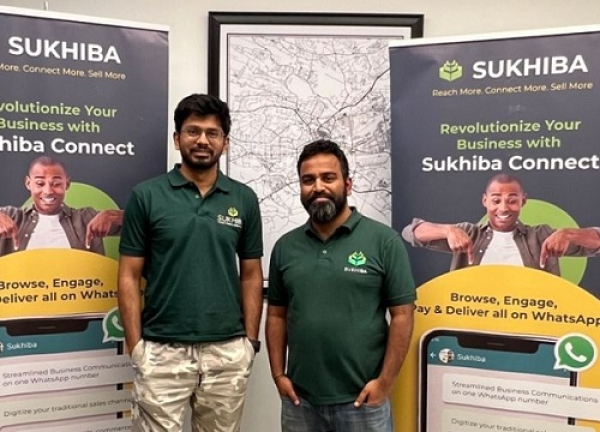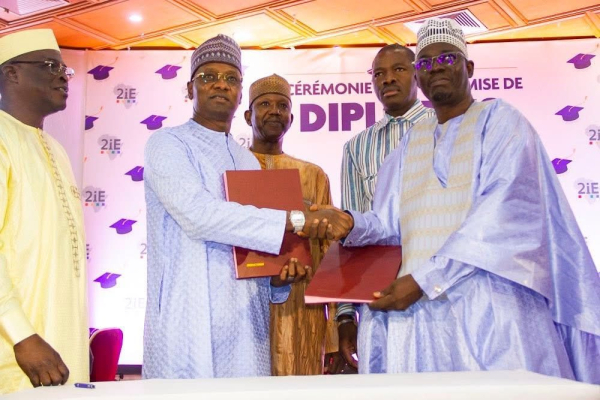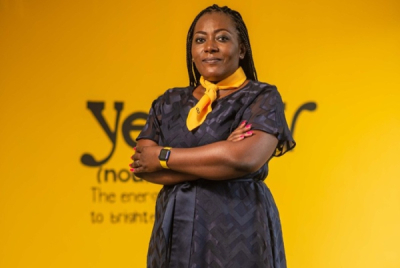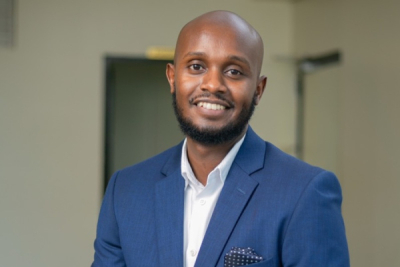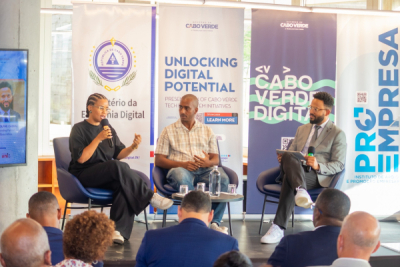The solution embraces a straightforward, inclusive approach to make e-commerce widely accessible in Kenya. It uses WhatsApp as its primary sales channel.
Flowcart, a digital solution developed by a young Kenyan startup, enables businesses to manage their entire sales process via WhatsApp. The startup, originally founded as Sukhiba in 2021 by Ananth Raj Gudipati and Abhinav Reddy, successfully raised $1.55 million in 2024 to support its expansion across the continent.
Flowcart's growth relies on proprietary automation technology, enhanced by messaging data analysis, which allows for personalized service at scale. The platform integrates everything from product catalogs to payments, including orders and customer follow-up, all within a familiar interface.
"We built Sukhiba with a clear goal: to enable commerce on WhatsApp," said Ananth Gudipati, co-founder of Flowcart. "As we grew, we realized that driving revenue requires more than just chat. Businesses need smarter automation, seamless customer journeys, and tools that turn every conversation into a conversion. Flowcart is the evolution of that vision. It is more refined, more powerful, and built for the future of commerce in chat."
This low-tech approach allows small and medium-sized enterprises (SMEs) and informal traders to conduct online sales without friction. It bridges a gap between traditional platforms and actual sales practices across Africa. By relying heavily on WhatsApp, the startup exemplifies a trend in conversational e-commerce on the continent. This agile model, rooted in local habits, could redefine digital commerce in emerging economies.
Adoni Conrad Quenum
-
Chad's ADETIC partners with Burkina Faso’s 2iE to train professionals in digital and emerging technologies.
-
Agreement includes training, intern exchanges, and joint research on digital governance.
-
ENASTIC signs separate protocol with 2iE to boost academic collaboration.
The Chadian Agency for the Development of Information and Communication Technologies (ADETIC) has partnered with the International Institute for Water and Environmental Engineering (2iE), a private training center in Ouagadougou, Burkina Faso. This initiative aims to train Chadian professionals in digital fields and in advanced and emerging technologies.
The framework agreement rests on three main pillars. It includes training Chadian professionals in artificial intelligence and emerging technologies, hosting Burkinabe interns within ADETIC, and developing joint applied research projects. These projects will focus on digital governance, local innovation, and sustainable development. Chad’s National School of ICT (ENASTIC) and 2iE also signed a separate collaboration protocol to facilitate academic exchanges and joint program development.
This initiative unfolds during the official visit by Chadian Minister of Telecommunications, Digital Economy and Digitalization of the Administration, Boukar Michel, to Ouagadougou. The agreement reflects a commitment to building human capital that can support public administration modernization and meet digital economy demands. By partnering with 2iE, Chad aims to accelerate the professional development of its talent, often hindered by a lack of specialized training infrastructure within the country.
This partnership comes as many African countries pursue policies to digitize public services. The success of these reforms largely depends on the availability of local technical expertise. Investing in training qualified professionals is thus a strategic priority for states like Chad, which face both a shortage of specialized human resources and increasing needs in e-government services.
Samira Njoya
Angela Ngo Ndouga has spent over 15 years studying the weaknesses in corporate finance. From Paris to Douala, she followed a clear path: first understanding the systems, then fixing their flaws.
A Cameroonian entrepreneur, Angela specialises in alternative financing and factoring across Africa. She co-founded Yellow Factoring, a fintech company launched in 2021.
Yellow Factoring digitises trade receivables to help small and medium-sized enterprises (SMEs) access quick cash. The platform allows companies to upload invoices, which Yellow Factoring reviews to verify and assess risk. It advances up to 80% of the invoice value in under 72 hours. The firm then manages collection and assumes the risk of non-payment.
Beyond cash advances, Yellow Factoring also provides administrative support, receivables management, financial training, and sector-specific tools for retail, import-export, and agri-food businesses.Yellow Factoring prioritizes small and medium-sized enterprises (SMEs) often left out of short-term financing, focusing especially on women-led businesses. The company collaborates with partners such as Afreximbank, the European Union, and the I&P Accélération programme in Africa.
By leveraging digital tools, Yellow Factoring automates processes, ensures operational transparency, and smooths interactions between entrepreneurs and creditors.
Before starting Yellow Factoring, Angela Ngo Ndouga co-founded Lusis & Co, a Cameroonian consultancy focused on operational performance and credit management, where she served as deputy managing director from 2016 to 2021.
She holds a master’s degree in international financial management from the Paris School of Business (2011). Angela began her career in 2008 at Société Générale Factoring in Paris as an international account manager. In 2011, she joined Coface Cameroon, a trade credit risk management firm, progressing from Factoring Account Manager to Head of the Factoring Department in 2014.
Melchior Koba
Daniel Kagame Ndahiro studies the challenges faced by small businesses and designs solutions to address their needs. With Credify Africa, he targets the financing obstacles that limit growth for these enterprises.
As entrepreneur and CEO of Credify Africa, founded in 2015, Ndahiro leads a fintech focused on helping African small and medium-sized enterprises (SMEs). The company specialises in SME financing, international trade, and logistics services. It aims to simplify credit access and smooth international transactions for local businesses facing multiple growth barriers.
Credify Africa has positioned itself as a key player in supply chain optimisation. It offers integrated services including invoice advances, real-time multi-currency payments, customs assistance, and freight management.The platform automates the entire process from registration to decision-making using scoring tools tailored for the African market. This system shortens disbursement times, eases access to finance, and cuts down on administrative steps.
Thanks to these innovations, Credify Africa lets SMEs complete international payments swiftly, bypassing usual currency conversion hurdles and banking delays. The company also provides tailored support to help clients manage cash flow and organize their finances efficiently. Additionally, it offers training programs to boost entrepreneurs’ skills in using digital tools.
Before launching Credify Africa, Daniel Kagame Ndahiro built strong financial sector experience. He earned a bachelor's degree in economics and finance from the University of Cape Town in 2011. Ndahiro began his career in 2012 as a director at Camouflage Media. In 2015, he co-founded Shaka Capital, a Ugandan microfinance firm focused on asset financing, which he led until 2018.
This article was initially published in French by Melchior Koba
Edited in English by Ange Jason Quenum
Matt Surkont is a South African technology entrepreneur and investor. He builds digital services, launches innovative businesses, and backs high-impact projects. He holds stakes in multiple South African companies.
As founder and CEO of BlueSky, established in 2017, Surkont drives digital transformation for South African organisations. BlueSky focuses on cloud solutions, artificial intelligence, and integration services.
The company covers the full technology cycle—strategy, deployment, integration, training, and ongoing support. It partners globally with firms like Salesforce, Amazon Web Services, Tableau, Alteryx, Snowflake, and Databricks.
BlueSky offers cloud architecture, data analysis, automation, app development, CRM integration, cybersecurity, customer experience management, and team support.
Matt Surkont co-founded Lodestone, a venture capital company dedicated to developing innovative technology projects. He holds investments in Pandora Health, an AI-based precision medicine platform, and Coot Club, an accommodation venture located in a 464-hectare private nature reserve.
He joined the international YPO network and in 2004 founded Resolve Red, providing Oracle services to clients across public and private sectors.
Surkont earned a Bachelor’s degree in Information Systems from the University of Cape Town in 1999 and began his career as a software engineer at the Bank of Ireland. He later invested in multiple South African startups, including Bloomable, an online flowers and gifts platform, and Khonology, a technology services company.
This article was initially published in French by Melchior Koba
Edited in English by Ange Jason Quenum
-
Cape Verde launches BOOST.CV to support 150 young digital entrepreneurs with training, mentoring, and incubation.
-
The government offers extensive support including scholarships, funding, tech event participation, and a $24 million Morabeza Fund.
-
Despite ranking 75th globally and 2nd in West Africa, Cape Verde faces challenges from infrastructure gaps, investment shortages, and a cautious population favoring public jobs.
Cape Verde aims to make digital technology a core part of its socio-economic growth. The government targets increasing the digital sector’s share of GDP from about 5% in the near future.
On July 28, the Cape Verdean government launched the BOOST.CV programme. It intends to back 150 young entrepreneurs in the digital sector by offering training, mentoring, and project incubation.
Deputy Prime Minister Olavo Correia said, “This is not just a technological tool, but a public policy instrument designed to generate real impact. We firmly believe that Cape Verdean talent, both on the islands and in the diaspora, is our greatest resource. And it is our responsibility as a State to create the conditions for this talent to flourish and innovate.”
BOOST.CV complements earlier measures. In May, Pedro Lopes, Secretary of State for the Digital Economy, told Agence Ecofin that the “Cape Verde Digital” programme is a flagship initiative. “Through digital.cv, you can explore our ecosystem. We support 200 young people annually via scholarships and fund around 100 start-ups with two co-founders receiving six minimum salaries, plus logistical and marketing assistance. The Go Global programme finances participation in international tech events.”
Other programmes include "Reinvent Cape Verde," where start-ups solve challenges set by public and private institutions via hackathons, and the Morabeza Fund, a $24 million fund geared toward growing tech start-ups led by youth and women.
Lopes also highlighted regulatory progress, noting a dedicated start-up law with tax benefits, a special technology economic zone, and modern laws on data protection and digital transactions. The government has simplified business registration, launched visas for digital nomads, and opened a technology park.
Cape Verde’s start-up ecosystem ranks 75th worldwide and 2nd in West Africa, according to StartupBlink’s Global Startup Ecosystem Index 2025. The report notes that start-ups face challenges from poor physical infrastructure and a weak investment climate. Additionally, many citizens prefer stable public sector jobs and view entrepreneurship as risky.
Isaac K. Kassouwi
He designs agricultural tools in Côte d'Ivoire. He works with local producers to develop machinery and create services that structure local value chains.
Daniel Oulai (photo), an Ivorian social entrepreneur, focuses on sustainable agriculture, agroecology, and food sovereignty. Born in Liberia and raised in his father's home country, Côte d'Ivoire, he founded and leads the startup Grainotech.
Launched in 2017, Grainotech is an agri-tech company based in Abidjan. It develops solutions to transform local agricultural practices through innovation and digital technologies. The company aims to sustainably structure plant and animal value chains while integrating biodiversity, economic inclusion, and food autonomy.
Grainotech has established an ecosystem covering the entire agricultural chain, from animal reproduction to feed production. This includes engineering tools to reduce post-harvest losses and digitally assisted distribution systems. The company supports small producers by training them, providing equipment, and facilitating market access. Grainotech aims to reach 60,000 farming families by 2030.
Among its tools, Grainotech uses digital platforms, school farms, and a Fablab. This Fablab is a space for designing and sharing open-source solutions, such as the connected solar incubator. The initiative relies on dialogue between scientific research and farmers’ knowledge to develop tools adapted to local realities.
"We have developed a connected solar incubator that allows any farmer in a rural area without access to electricity to reduce egg hatching losses," said Oulai. "It is made from recycled materials, and it's an open-source technology that any farmer can replicate."
Daniel Oulai earned a master's degree in agricultural development in 2016 from AgroParisTech. He began his career in 2013 as program director at ASBL Kouady, a youth association supporting community development in Côte d'Ivoire. From 2018 to 2025, he worked as a training manager at the International Rescue Committee in Côte d'Ivoire. He also served as a consultant for the International Organization for Migration (IOM–UN Migration) from 2023 to 2025.
In 2017, he received the Initiative Climat Afrique francophone award at COP 22 in Morocco. He won the Orange Social Entrepreneur Prize in Côte d'Ivoire in 2018. He also received the Pierre Castel Prize, awarded by the eponymous fund, which recognizes high-impact agricultural projects led by young African entrepreneurs.
Melchior Koba
-
HAVAÍC’s African Innovation Fund reached \$50M after a second close with $25M from Sanlam and others.
-
The fund backs high-impact African startups; recent investments include SAPay and Sportable.
-
Amid weak VC recovery, HAVAÍC targets scalable tech growth across fintech, healthtech, and more.
South African venture capital firm HAVAÍC announced on Tuesday, July 29, the second close of its African Innovation Fund, which now totals $50 million. This latest phase secured an additional $25 million from Sanlam Multi-Manager and existing investors, including Fireball Capital and the SA SME Fund.
These supports are “testament to our track record for not only delivering leading returns by supporting African-born businesses, but also creating meaningful social and economic change through our investments. Together, we can continue supporting our continent’s dynamic tech entrepreneurs and grow African VC to new heights," said Ian Lessem, managing partner at HAVAÍC.
Launched in August 2024, this third fund targets post-revenue African startups that show high growth potential and measurable impact. The fund recently invested $1 million in SAPay, a South African financial technology firm that digitizes payments in the minibus taxi sector. HAVAÍC also increased its stake in Sportable, a startup developing real-time sports tracking technologies.
A Rebound in African Venture Capital That Remains Fragile
The year 2023 saw a sharp halt in funding for African startups, with a 36% decline and less than $3.2 billion raised overall, down from over $6 billion in 2022, according to Africa: The Big Deal. In 2024, amounts raised remained modest at $2.2 billion, the same sources reported.
HAVAÍC's portfolio includes 22 startups active in 183 countries, with six notable exits. These exits include the sale of RapidDeploy to Motorola Solutions in February 2025 and the merger between hearX and U.S.-based Eargo. HAVAÍC continues to pursue a strategy focused on building globally scalable African tech champions.
Beyond just funding access, the capital raised by HAVAÍC is expected to bolster the African tech ecosystem. It aims to support the scalability of innovative companies in key sectors such as financial technology, agricultural technology, health technology, and education technology. For institutional investors like Sanlam, this move seeks to capture the long-term potential of a developing market by relying on experienced local partners.
The challenge remains substantial. According to the African Private Capital Association, the continent still attracts less than 1% of global venture capital. Initiatives like HAVAÍC's Fund II therefore, act as catalysts to draw both local and international capital towards Africa's most promising companies.
Samira Njoya
Malawian engineer and entrepreneur Sanga Kanthema is reshaping healthcare in southern Africa through biomedical innovation and robotics. Based in Blantyre, he leads Dolphin Health Innovation, a start-up designing smart medical devices for low-resource environments.
Kanthema, who works at the intersection of electronic engineering and equipment manufacturing, focuses on building tools that meet the realities of rural Africa. Since founding Dolphin Health Innovation in 2018, he has pushed to equip healthcare systems with telehealth technologies tailored for areas with weak infrastructure.
His company develops real-time ECG sensors that can transmit cardiac signals remotely, even in zones with limited connectivity. These devices rely on algorithmic data compression and intuitive mobile interfaces, allowing for continuous monitoring, early diagnosis, and remote intervention.
Kanthema also founded Qubix Robotics in 2022 to drive local manufacturing. The company builds CNC machines, 3D printers, and robotic systems to automate industrial production across healthcare, transport, and telecom sectors. Its mission: to strengthen Africa’s industrial independence.
Beyond entrepreneurship, Kanthema champions tech education. As a TME Education ambassador, he promotes electronics training in underserved regions. He also represents IdeaXme, a global network supporting socially-driven science and innovation.
This article was initially published in French by Melchior Koba
Edited in English by Ange Jason Quenum
Ebrima Fatty, a Gambian entrepreneur with over two decades of experience in finance and technology, is connecting local producers, retailers, and consumers through a digital platform he created.
Fatty is the founder and CEO of AfricaSokoni, a London-based e-commerce company launched in 2017. The platform targets African markets, with a strong focus on Kenya.
AfricaSokoni, which means "market" in Swahili, links local businesses, producers, and artisans to regional demand. It also gives individuals easy access to a broad range of goods through its user-friendly online interface.
The platform supports small and medium-sized enterprises (SMEs), farmers, and artisans with tools for supply chain management, financing, and digital promotion. For everyday consumers, AfricaSokoni offers products in electronics, fashion, beauty, home appliances, and telecommunications.
AfricaSokoni integrates services like inventory management, stock tracking, automated orders, and supplier relationship management. The company also builds partnerships to help small businesses manage cash flow and access services like marketing, content creation, packaging, and logistics—even paving the way to international markets.
"AfricaSokoni is a comprehensive platform dedicated to empowering the MSME sector in Africa and helping businesses grow and thrive. If you are a small or medium-sized business looking to succeed in Africa, we invite you to join our platform and discover the many ways we can support you," the company says.
Alongside his entrepreneurial work, Fatty serves as a product manager at the Islamic Development Bank (IsDB) in Saudi Arabia.
He earned his Master's degree in Accounting and Finance from the University of Maiduguri, Nigeria, in 2000.
Fatty began his career the same year at Deloitte as a senior auditor. In 2001, he joined the Gambia Capacity Building for Economic Management Project as financial controller. There, he worked on strengthening government capacity in economic policy, judicial reforms, and private sector development until 2005.
This article was initially published in French by Melchior Koba
Edited in English by Ange Jason Quenum
More...
Gabon is deepening international partnerships to fast-track its digital transformation. After recent discussions with Botswana, President Brice Clotaire Oligui Nguema has now turned to Turkey for support.
On July 29, Mark Alexandre Doumba, Gabon's Minister of the Digital Economy, met with Can İncesu, Turkey's Ambassador to Gabon, to discuss expanding digital cooperation.
During the meeting, Doumba presented Gabon’s digital roadmap. He emphasized four key priorities: modernizing public administration, expanding digital infrastructure, ensuring data governance and technological sovereignty, and training young digital talent.
Ambassador İncesu expressed Turkey’s interest in supporting Gabon’s efforts. He highlighted potential cooperation in e-government systems, electronic signatures, remote payment solutions for public services, and telecom infrastructure development in underserved areas.
Turkey ranks 27th out of 193 countries on the UN E-Government Development Index (EGDI), with a score of 0.8913, well above the global average of 0.6382. It scores 0.9225 in online services, 0.9192 in human capital, and 0.8322 in telecom infrastructure.
In 2024, Turkey reported 87.3% internet penetration and 96% mobile coverage, according to the International Telecommunication Union (ITU). On the 2025 ICT Development Index, Turkey scored 88.5 out of 100.
Gabon currently ranks 121st globally on the EGDI, with a score of 0.5741. The country performs strongly in telecom infrastructure (0.8263) but lags in online services (0.3188) and human capital (0.5772).
Despite these gaps, Gabon aims to boost the digital sector’s share of GDP to 10–12% by end-2025, up from around 5%. The government also wants to diversify the economy and reduce reliance on extractive industries by investing in digital tools and services.
While both sides expressed strong intent, the partnership remains at an early stage. So far, no official agreement has been signed. The two parties agreed to continue technical discussions to identify high-impact projects for Gabonese citizens.
The road to a full partnership still needs building. Future meetings will determine the real scope and effectiveness of this cooperation.
This article was initially published in French by Isaac K. Kassouwi
Edited in English by Ange Jason Quenum
Nigeria is advancing its digital transformation agenda through a partnership between NITDA and Google. Director General Kashifu Inuwa and Google’s VP Marcus Jadotte met with key government figures, including Ministers of Interior, Communications, and Education, as well as the National Security Adviser.
NITDA and Google share a vision to position Nigeria as a West African leader in AI and cybersecurity. Their efforts focus on equipping students with digital skills, preparing a future-ready workforce, and improving national productivity.
This partnership is also expected to attract foreign investment, support national security through digital intelligence, and drive inclusive economic growth.
He analyzes user behavior, pinpoints challenges, and then converts those limitations into successful products. Leveraging his expertise in marketing and strategy, he develops services that appeal to a broad audience.
Elias Mahugnon Missihoun (photo), a Beninese entrepreneur, is the founder and CEO of Axa Zara, a company that designs digital tools for individuals and businesses using technical and creative talent.
Founded in 2019, Axa Zara develops technology solutions now used by over 150,000 people globally. The company states its mission is to expand access to digital services in Africa.
Among its products is Zeyow, a platform allowing users to generate virtual bank cards in minutes for online payments at reduced and transparent rates. Axa Zara also developed Moneroo, a tool for businesses to centralize multiple payment gateways through a single integration. This solution aims to simplify operations, reduce costs, and improve customer relationship management.
The company also offers Mailzeet, an infrastructure for sending transactional emails. This service enables real-time tracking of message performance using indicators such as open and click rates to optimize campaigns. Lastly, Chariow provides an interface for creating and selling digital products accessible worldwide.
Elias Mahugnon Missihoun earned a bachelor’s degree in marketing, communication, and business in 2022 from Benin’s private university ISM Adonaï. He also holds an entrepreneurship and leadership certificate from HEC Morocco and a business strategy certificate from Harvard Business School Online.
Melchior Koba
-
Senegal and Alibaba Cloud signed a $5M deal to host Dakar 2026 Youth Olympic Games on sovereign cloud infrastructure.
-
Agreement includes local data hosting, training 200 engineers, and post-Games use as national public cloud.
-
Supports Senegal’s digital sovereignty strategy and follows PM Sonko’s June 2025 China visit.
The Senegalese government announced on Monday, July 28, it signed a memorandum of understanding with China’s Alibaba Cloud in Hangzhou. The initiative aims to provide secure, high-performance, and sovereign cloud infrastructure for the Youth Olympic Games, scheduled for Dakar in 2026. It will also establish a lasting digital ecosystem in Senegal.
According to Selina Yuan (photo, center), Vice President of Alibaba Group and President of Alibaba Cloud Intelligence International, this is the first time a world-class cloud technology will support an Olympic event in Africa. She added that Alibaba aims to deliver an efficient, secure, and innovative digital experience for athletes, organizers, and spectators through its proven cloud infrastructure and AI capabilities.
The agreement includes an initial investment of $5 million to deploy Alibaba Cloud’s hybrid Apsara Stack solution. This will allow for local data hosting that complies with international standards. The partnership also covers training 200 cloud engineers, creating a technology center of excellence, and implementing digital services for the Youth Olympic Games, including ticketing, e-transport, and live streaming. After the event, the infrastructure is expected to become a national public cloud to support public and private sector services.
This partnership follows Prime Minister Ousmane Sonko’s official visit to China in June 2025. It aligns with the "New Deal Technologique," Senegal's national strategy to boost digital sovereignty through innovation, local infrastructure, and training. The agreement also marks a new step in strengthening technological ties between Dakar and Beijing.
With this initiative, Senegalese authorities aim to make the Youth Olympic Games a technological springboard and reinforce their digital sovereignty strategy. Developing local expertise through training 1,000 young people via the Alibaba Cloud Academy and establishing robust infrastructure should help Senegal accelerate its digital transformation while promoting innovation and skilled employment.
Samira Njoya


